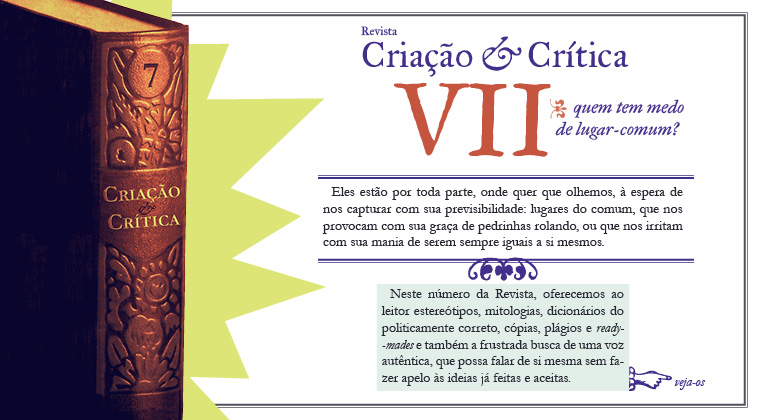Finda a língua, fim da linha
DOI:
https://doi.org/10.11606/issn.1984-1124.v4i7p35-44Keywords:
Mayakovsky, everyday life, future, communism, suicide.Abstract
The work of Vladimir Mayakovsky, interspersed with greatnesses and magnified over decades by its power concerning to social upheavals, carries a blind spot, which we believe it cannot be left out — even though it was largely ignored in favor of an image of strength and bravery, that interested, above all, to the Regime. Expressions such as ‘future’ and ‘everyday life’, which in his work have the strength of concepts, when taken seriously, it allow us to infer about the poet's ambiguous relationship with the need of breaking with the tradition, on what depend, in his opinion, both politics and love, and even poetry itself. To work with these features of his work is to search, behind the myth created by a government, features of a writing that attempted to escape from the mere repetition of the past, finding its limits in this quest.
Downloads
Downloads
Published
Issue
Section
License
Authors who publish with this journal agree to the following terms:
- Authors retain copyright and grant the journal right of first publication with the work simultaneously licensed under a Creative Commons Attribution License that allows others to share the work with an acknowledgment of the work's authorship and initial publication in this journal.
- Authors can enter into separate, additional contractual arrangements for the non-exclusive distribution of the journal's published version of the work (e.g., post it to an institutional repository or publish it in a book), with an acknowledgment of its initial publication in this journal.
- Authors are permitted and encouraged to post their work online (e.g., in institutional repositories or on their website) before and during the submission process, as it can lead to productive exchanges, as well as earlier and greater citation of published work (See The Effect of Open Access).



